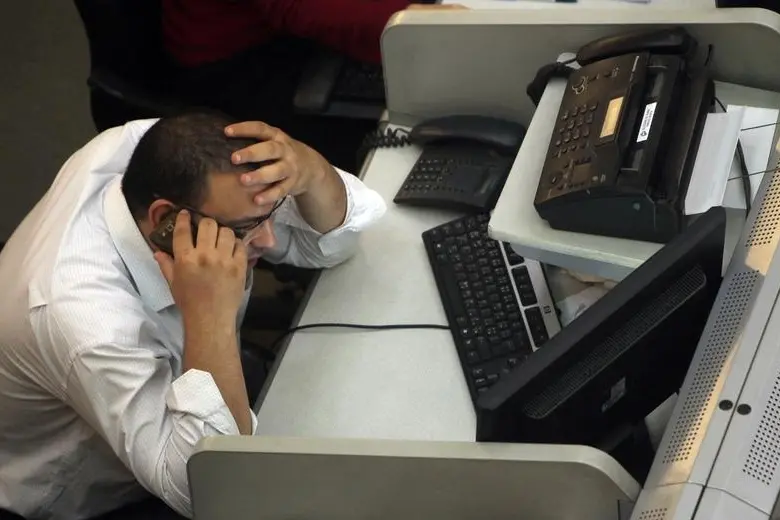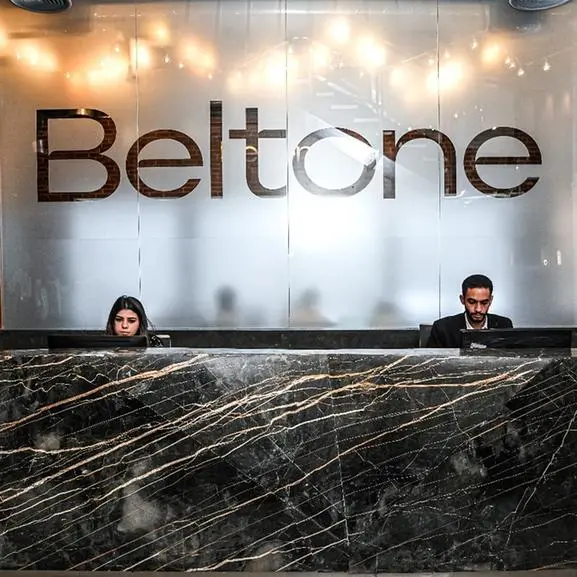PHOTO
The US dollar exchange rate hit a record high this week amid expectations of a further depreciation of the Egyptian pound, writes Nesma Nowar.
The US dollar reached a record high on the black market against the pound this week, with buying rates at LE12.70 to LE13 to the dollar and selling rates at LE12.30 to LE12.50 bringing the gap between Egypt's official and unofficial rates to the widest ever.
The official rate for the dollar remained stable in the banks at LE8.78, which means that the dollar is selling on the black market for more than 40 per cent above the Central Bank of Egypt's (CBE) official rate.
One trader told Al-Ahram Weekly that the hike in the exchange rate had come on the back of a persistent shortage of foreign currency.
Egypt has been grappling with a foreign currency shortage after political instability in recent years which has strained its foreign currency earnings. The crisis became graver when tourism receipts fell sharply after the downing of a Russian airliner over Sinai last year.
Speculation over an imminent devaluation has compounded the problem, with this growing after CBE governor Tarek Amer told the media in early July that it had been "a mistake to fix the currency at an artificial rate" and his focus now was on stimulating the economy.
There was a devaluation of the pound in March, when the CBE devalued the currency by 14 per cent to LE8.78 per US dollar. The CBE has since been keeping the pound artificially strong through its weekly dollar auctions.
"It is not possible to discuss the flotation of the pound now... but a further devaluation would depend on what the bank sees at the appropriate time," Amer was quoted as saying by the state news agency MENA.
The trader who spoke to the Weekly said that speculation regarding a possible further devaluation had led to an increase in demand for the dollar, causing people to hold onto dollars out of fears of a further depreciation.
Ali Al-Hariri, secretary-general of the Foreign Exchange Bureaus Division at the Federation of Chambers of Commerce, believes that the persistent shortage of foreign currency is the reason behind the exchange rate fluctuations.
"Rumors about the dollar and the exchange rate have increased the desire to invest in dollars," he told the Weekly.
The uncertain market situation led to a lukewarm stock market performance this week. On Sunday, the main EGX30 index rose slightly by 0.4 per cent as local investors accumulated shares in mainly export-oriented and real estate development stocks as these could benefit from another currency devaluation.
However, the current dollar crisis is not a problem in itself, experts said, stating that it should be seen instead as a symptom of the problems of the Egyptian economy as a whole, most notably the fact that the country does not produce enough for local consumption. As a result, it depends on imports for everything from food to fuel, increasing the need for dollars.
Economists say a further devaluation is all but inevitable. But the timing will be vital to maximise its impact while mitigating any inflationary effects.
It is difficult for traders to predict when the dollar exchange rate will stabilise, but sources told Al-Masry Al-Youm that they expected there would be new regulations soon that would help stabilise the market.
In recent months, the CBE has pressed ahead with measures to deal with the foreign currency shortage. Besides the devaluation, it has introduced import regulations that are meant to discourage unnecessary and low-quality imports.
The CBE has also further tightened controls on foreign exchange bureaus, and it closed down several after inspections proved they were buying and selling currencies at unofficial rates.
The recent crackdown on foreign exchange bureaus has brought the number of shuttered bureaus in recent months to 17. According to the CBE, there are 111 exchange bureaus operating in Egypt.
Exchange companies are allowed to sell dollars at LE0.10 more than the official rate, but many are going way above this.
The foreign currency crunch has pushed most banks to tighten limits on cash withdrawals and on the use of credit and debit cards abroad to stem the outflow of foreign currency.
According to Amer, the CBE has injected more than $23 billion into the economy through weekly and exceptional auctions over the past eight months starting in November 2015.
© Al Ahram Weekly 2016





















